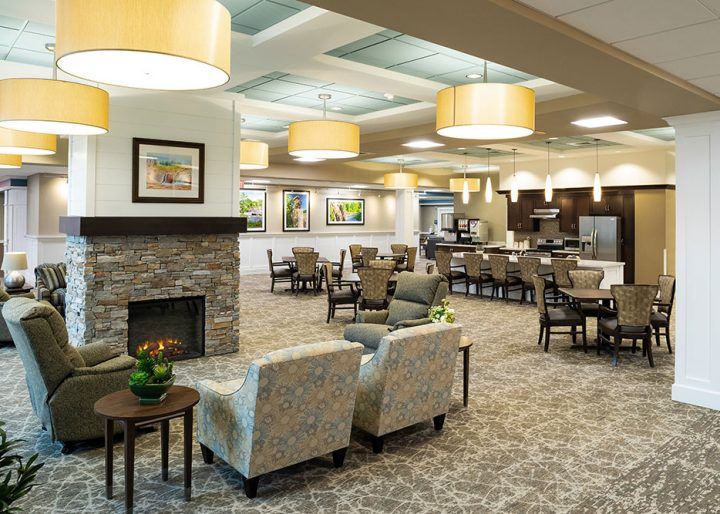Specialized Memory Care solutions for seniors with Alzheimer’s and dementia.
Specialized Memory Care solutions for seniors with Alzheimer’s and dementia.
Blog Article
Helped Living: a Compassionate Setting for Elders With Memory Obstacles
Aided living centers progressively work as compassionate environments customized to the special requirements of senior citizens grappling with memory difficulties. By offering personalized treatment and organized routines, these communities not just improve cognitive function but additionally foster psychological connections, reducing isolation amongst citizens. Specialized methods, such as music treatment and reminiscence techniques, are used by skilled staff to facilitate much deeper communication. The effectiveness of these treatments typically pivots on the involvement of family members in the care procedure, prompting a more detailed evaluation of just how this collective initiative influences end results for both locals and liked ones.
Recognizing Memory Challenges
Comprehending memory obstacles is essential for offering reliable treatment to seniors facing cognitive decrease. Memory problems, which can manifest as forgetfulness, confusion, or trouble remembering current events, are typically signs and symptoms of problems such as Alzheimer's disease or other forms of dementia. These obstacles can dramatically influence a senior's capacity to execute daily tasks, maintain social connections, and handle individual safety.
Identifying the numerous stages of cognitive decrease is critical for caregivers and health care specialists. Early-stage amnesia might entail mild lapse of memory, while mid-stage decline can lead to more pronounced disorientation and confusion. In late-stage dementia, individuals may lose the ability to communicate effectively, requiring thorough assistance and understanding from caretakers.
In addition, memory obstacles can stimulate a series of psychological reactions, including aggravation, anxiety, and depression. This necessitates a thoughtful technique to care that prioritizes the psychological health of the person. Comprehending the complexities of memory obstacles makes it possible for caretakers to produce tailored approaches that improve communication, promote engagement, and provide a feeling of protection. Inevitably, a deep understanding of these difficulties is fundamental to supplying caring and effective take care of elders dealing with cognitive decrease.
Advantages of Assisted Living
Assisted living deals various benefits for seniors with memory obstacles, supplying a supportive atmosphere that fosters self-reliance while making sure safety and security and care. Among the primary advantages is the round-the-clock guidance and assistance offered, which helps alleviate risks related to memory-related concerns. Memory Care. This constant assistance permits senior citizens to involve in daily tasks without the fear of accidents or complication
Additionally, helped living centers frequently give structured routines that can boost cognitive function and stability. These regimens aid residents really feel more safe and secure and reduce stress and anxiety, as they recognize what to expect every day. Social communication is an additional significant benefit, as these settings urge connections among residents, promoting emotional wellness and lowering feelings of isolation.
Additionally, aided living staff are trained to acknowledge the special demands of senior citizens with memory obstacles, enabling personalized care plans that attend to specific choices and needs. This tailored approach not only improves the high quality of treatment however additionally encourages seniors to maintain a feeling of autonomy. Overall, assisted living acts as a caring option, stabilizing the requirement for assistance with the need for independence in the lives of seniors facing memory challenges.
Specialized Care Approaches
Executing specialized care strategies is crucial for successfully supporting seniors with memory obstacles. One essential approach is person-centered treatment, which highlights the importance of recognizing each citizen's life background, my website choices, and values.
An additional important technique entails using cognitive stimulation treatments. Activities made to improve memory recall, encourage social communication, and promote mental dexterity can considerably influence citizens' overall wellness. Techniques such as memory therapy take advantage of personal memories to stimulate conversation and connection, while songs treatment can evoke feelings and memories, providing convenience.

Developing a Supportive Neighborhood
(Dementia Care Charlotte)An encouraging community plays a critical role in boosting the lives of seniors with memory difficulties. Such a community promotes a setting of understanding, compassion, and support, which is vital for people encountering cognitive difficulties. By producing a network of assistance, assisted living facilities can dramatically improve the lifestyle for residents.
Central to a helpful community is the visibility of trained staff that are delicate to the unique needs of senior citizens with memory problems. These professionals not only supply crucial care but likewise involve homeowners in meaningful activities that promote cognitive function and advertise social communication. Programs that urge participation in group exercises, arts and crafts, or memory games can improve both physical and psychological health.
Moreover, a supportive community promotes strong connections among citizens. Urging relationships and peer support assists to lower sensations of seclusion and cultivates a feeling of belonging. Normal get-togethers and communal dining experiences can further strengthen these bonds, creating an atmosphere where seniors feel valued and understood.
Involving Families in Care
Involving family members in the treatment process is essential for providing comprehensive assistance to elders with memory obstacles. Member of the family commonly work as important advocates, offering insights right into the person's preferences, history, and routines that can enhance personalized treatment. By including them in conversations and care planning, assisted living centers can produce a much more holistic approach that reverberates with the citizen's requirements.

Urging families to participate in treatment not only improves the well-being of the senior yet also supplies psychological support to member of the family. Including family members in care cultivates a feeling of area and belonging, guaranteeing that elders feel connected to their liked ones. Inevitably, a collaborative technique to care improves the lives of both homeowners and their households, producing a thoughtful and supportive atmosphere that advertises self-respect and regard.
Conclusion
In conclusion, assisted living serves as a vital resource for seniors experiencing memory challenges, offering personalized care customized to specific demands. By entailing family members in the treatment process, helped living creates an extensive support network, ultimately improving the lives of homeowners and their loved ones.
Report this page